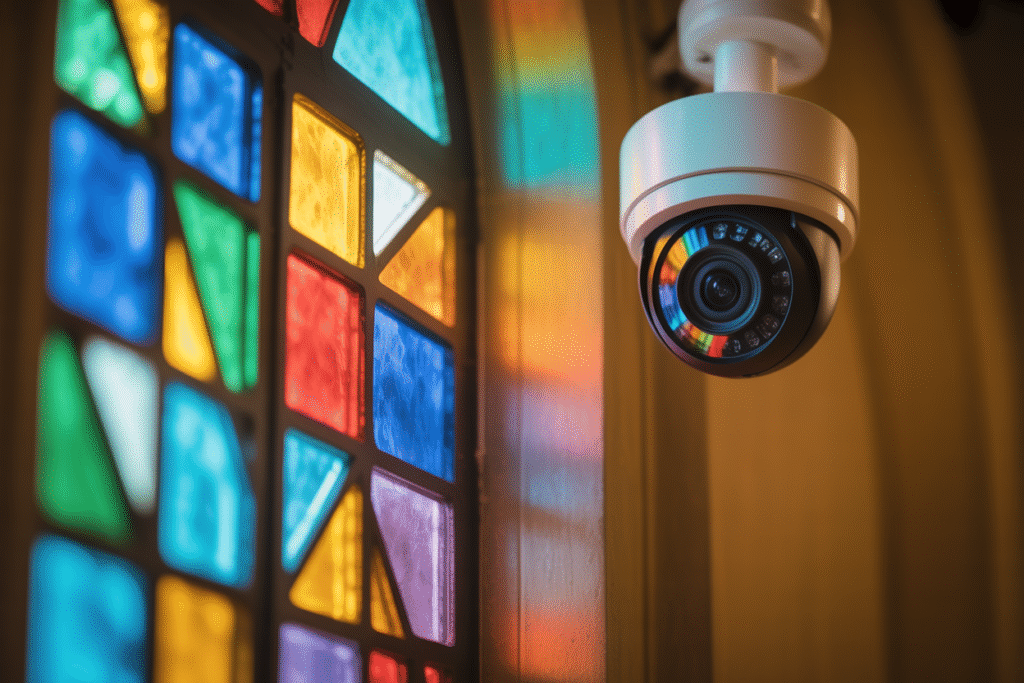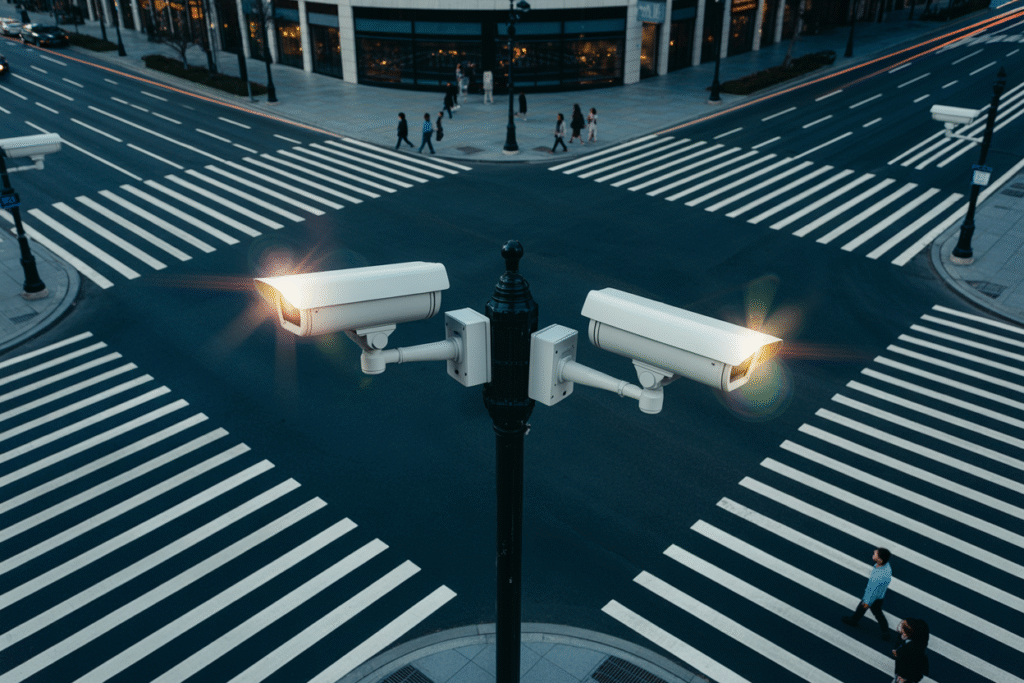From facial recognition in pews to AI chatbots giving spiritual advice, churches are becoming data hubs. Is your faith community next?
Walk into many churches today and you’ll find more than hymnals and holy water—you’ll find algorithms tracking your every move. From AI-powered donation predictions to facial recognition that logs your pew preference, faith communities are quietly becoming data experiments. This isn’t science fiction; it’s Sunday morning reality.
When the Offering Plate Holds Your Data
Imagine walking into Sunday service and realizing the camera above the pulpit knows exactly how often you attend, what you donate, and even which sermon topics make you squirm. That future is already here. AI surveillance in American churches is quietly reshaping faith communities, blending big data with big religion in ways that feel both miraculous and unsettling.
Companies like Gloo have built platforms that merge church databases with outside consumer records—think credit scores, shopping habits, even divorce filings. The result? A detailed psychological map of every congregant. Pastors can now predict who might skip next week’s service or who’s ripe for a stewardship campaign.
Facial recognition systems, already installed in over 200 churches, scan faces for security and engagement metrics. Meanwhile, AI chatbots masquerading as spiritual advisors answer late-night theological questions with algorithmic certainty. The line between pastoral care and predictive analytics has never been thinner.
Critics call it surveillance capitalism in a collar. Supporters argue it’s simply stewardship of modern tools. Either way, sacred spaces are becoming data mines, raising urgent questions about consent, privacy, and the soul of American religion.
Inside the Algorithmic Confessional
The numbers are staggering. One midwestern megachurch reportedly tracks 1,200 data points per member—from Spotify playlists to Amazon wishlists. They know when you’re grieving (online flower purchases spike) and when you’re job hunting (LinkedIn activity jumps). That intel shapes everything from sermon illustrations to small-group placements.
Facial recognition cameras log arrival times, seating preferences, and even micro-expressions during worship. Miss three Sundays in a row? Expect a personalized push notification quoting Hebrews 10:25. Donations dipped after last month’s tithing sermon? Your inbox receives a gentle reminder paired with a heartwarming testimony.
AI chatbots, trained on thousands of sermons and counseling sessions, now field spiritual queries 24/7. Ask about anxiety and receive verses curated by machine learning. Confess marital struggles and get book recommendations generated by predictive models. It’s efficient, yes—but is it pastoral?
The tech isn’t theoretical. It’s live in churches across denominations, often introduced as “member care” upgrades. Congregants rarely realize their spiritual journeys are being quantified, segmented, and monetized in real time.
The Moral Minefield of Faith-Based Big Tech
Not everyone is buying the digital revival. Privacy advocates warn that churches collecting granular personal data could become prime targets for hackers—or subpoenas. Imagine divorce attorneys demanding donation records to prove income, or insurance companies requesting mental-health flags from prayer-request apps.
Then there’s the theological tension. Christianity teaches that humans bear God’s image, not data profiles. When algorithms reduce complex souls to risk scores, do we lose something essential about grace? Critics argue that predictive analytics undermines the mystery of conversion by treating faith as a solvable equation.
There’s also the creep factor. One pastor admitted his team jokes about “prayer stalking”—using data to time pastoral visits when congregants are most vulnerable. Another confessed that engagement metrics now influence sermon topics more than spiritual discernment. Efficiency, it seems, has become its own gospel.
Yet defenders point to tangible benefits. Churches report higher volunteer rates after targeting inactive members with personalized invites. Crisis pregnancies drop when algorithms identify at-risk women and dispatch support teams. The debate isn’t black-and-white—it’s a murky ethical gray demanding careful navigation.
Reclaiming the Code for Christ
Amid the backlash, a counter-movement is emerging. Christian developers are building AI that embeds biblical ethics rather than extracting behavioral data. Projects like Gloo’s “Faith-Based AI” and Cōl’s theological chatbots aim to offer wisdom without surveillance.
These tools train exclusively on vetted Christian content—sermons, commentaries, counseling transcripts—filtered for doctrinal soundness. When asked about anxiety, they respond with scripture and practical prayer guidance, not targeted ads for meditation apps. The goal isn’t prediction but discipleship.
Early tests are promising. One beta chatbot handled 10,000 pastoral queries in six months with 94% user satisfaction. Another platform helps small-group leaders prepare discussion questions by analyzing sermon themes and member needs—without storing personal data.
The challenge? Funding. Ethical AI lacks the lucrative data-broker partnerships driving mainstream church tech. But grassroots support is growing, with seminaries offering coding bootcamps and denominations drafting AI ethics guidelines. The hope is to prove that technology can serve the gospel without selling it out.
Your Next Steps in a Data-Driven Sanctuary
So where do we go from here? First, churches must adopt radical transparency. Tell congregants exactly what data is collected, how it’s used, and who can access it. Offer opt-outs without guilt trips. Treat privacy as a spiritual discipline, not a legal checkbox.
Second, demand ethical audits. Before implementing any AI tool, ask: Would Jesus track people this way? Does this technology empower or exploit? If the answer tilts toward manipulation, walk away—no matter how slick the demo.
Finally, invest in digital literacy. Teach members to read privacy policies like they read scripture—slowly, carefully, asking what’s really being asked of them. Host town-hall nights where tech teams explain algorithms in plain English. Make skepticism a virtue.
The future of faith doesn’t have to be dystopian. With intentional boundaries and Christ-centered design, AI could amplify compassion rather than commodify it. But that requires choosing people over pixels, every single time.
Ready to audit your church’s tech stack? Start by asking your pastor one simple question: Who owns our congregation’s data—and what happens if they sell it?


